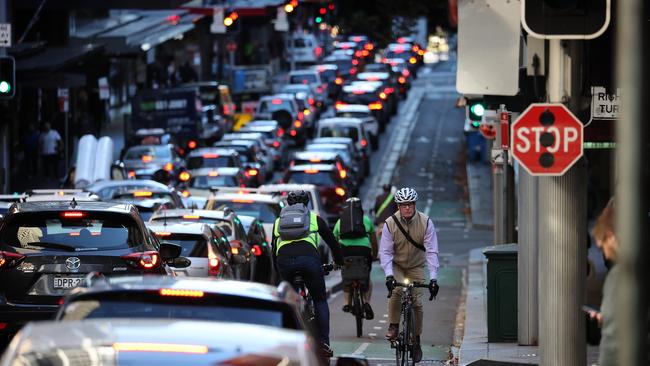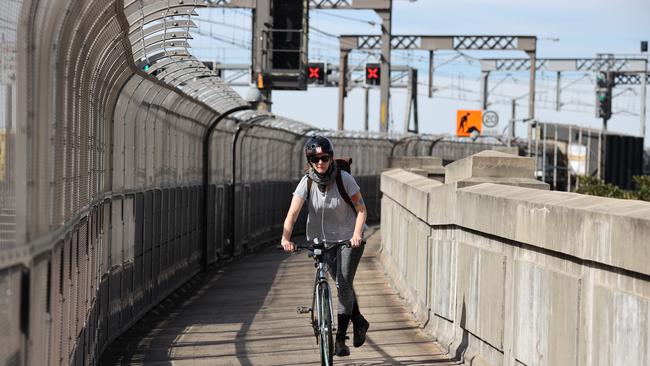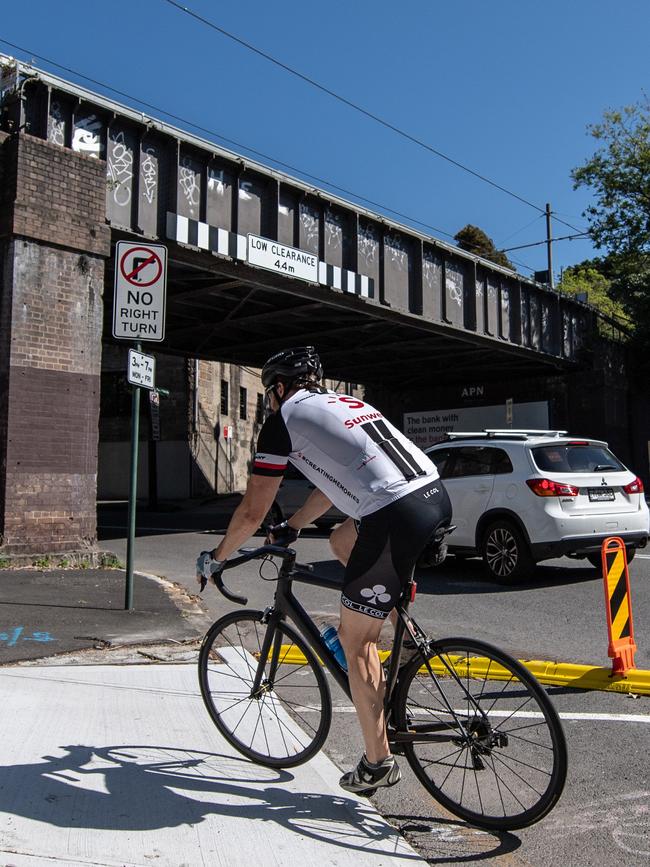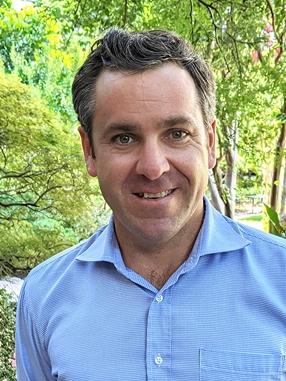Bicycle NSW urges members to flood council candidate inboxes for better bike infrastructure, bike lanes, lower speed limits
The state’s biggest bike lobby group is urging its base of 12,000 members to flood the inboxes of candidates running for upcoming NSW council elections in a bid to make cycling infrastructure, cycle lanes and lower speed limits top issues.
Local
Don't miss out on the headlines from Local. Followed categories will be added to My News.
The state’s biggest bike lobby group is urging its base of 12,000 members to flood the inboxes of candidates running for upcoming NSW council elections in a bid to make cycling infrastructure, cycle lanes and lower road speed limits top issues for local government.
Bicycle NSW has encouraged its members to contact all candidates running for next month’s local government elections as part of a push to ensure “cycling is on the agenda” during the course of the next four year council terms.
The cycle group’s chief executive Peter McLean said the aim was to ensure councils placed cycling front and centre of local decision making by ensuring streets are “prioritised for people not cars”.
The association has encouraged its members to email candidates by “asking them to promise improvements to bike infrastructure to secure their vote”.
The group also wants residential streets and town centres to have lower speed limits, restricted through traffic, high-quality footpaths and crossings, and more tree canopy.

Mr McLean said the delivery of new cycle infrastructure could also discourage the use of alternative transport such as cars and help councils reach their climate change targets.
“Cycling is incredibly important because it’s not just about making our cities more friendly but it’s about the health and wellbeing of the community,” he said.
“Most councils have net-zero 2050 climate plans and providing cycling infrastructure is one of the best ways they can decongest traffic because ultimately every bicycle rider on our road is one less car.

“In urban areas separated cycleways make a lot of sense as safety on roads is the single biggest barrier for beginners to take up cycling.
“A lot of motorists have said to us they actually like having separated cycle lanes because they feel nervous when they pass bikes on roads.
“Cycling is also a cost of living buster because not everyone can afford public transport or the cost of a car. Cycling is a cheap and effective way of getting from A to B.”


Bicycle NSW is the state’s leading cycling advocate group with its last annual report detailing a growing membership base of 12,000 members.
The group is pushing for councils to ensure their operational budgets have strong targets to improve streets “each and every year” with “best-practice paths, new crossings and trees”.
Mr McLean said while the NSW Government was responsible for much of the funding and decision-making affecting the state’s transport network, councils played a key role in controlling local roads and determining how rates were spent.
“Councils don’t always have the authority or responsibility to carry out projects but they do have a lot of power to integrate active transport including into existing developments whether that be new precinct plans or housing developments,” he said.
“Particularly in local government, it might also be ensuring developers include active transport connections (when approving new developments).”
Bicycle NSW has sent sample letters that its members can send to all council candidates in the lead-up to election polling day.
The association states promoting cycle and walking will also address many of the issues that “overwhelm councillors’ inboxes”.
Council elections are due to be held on September 14.





